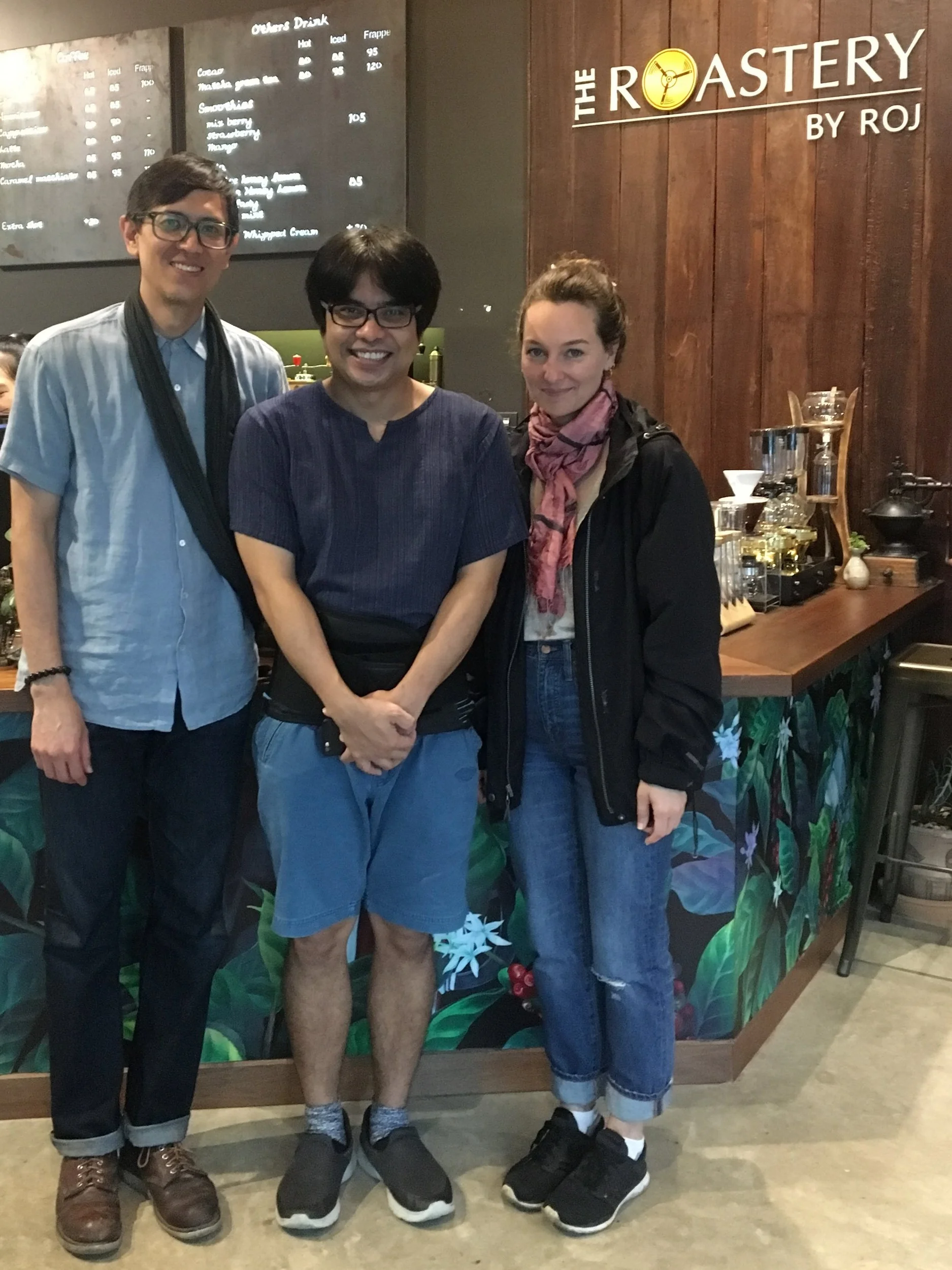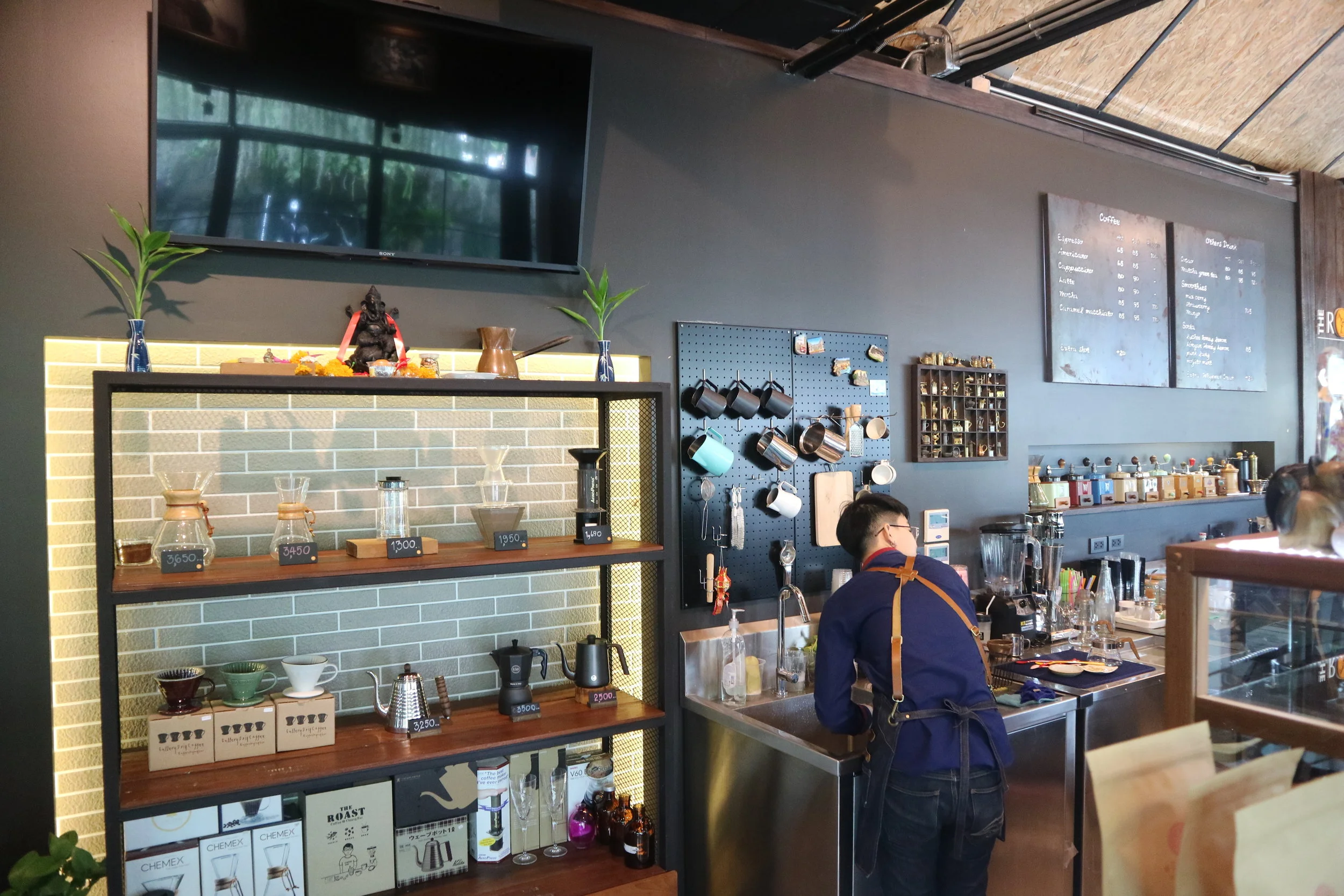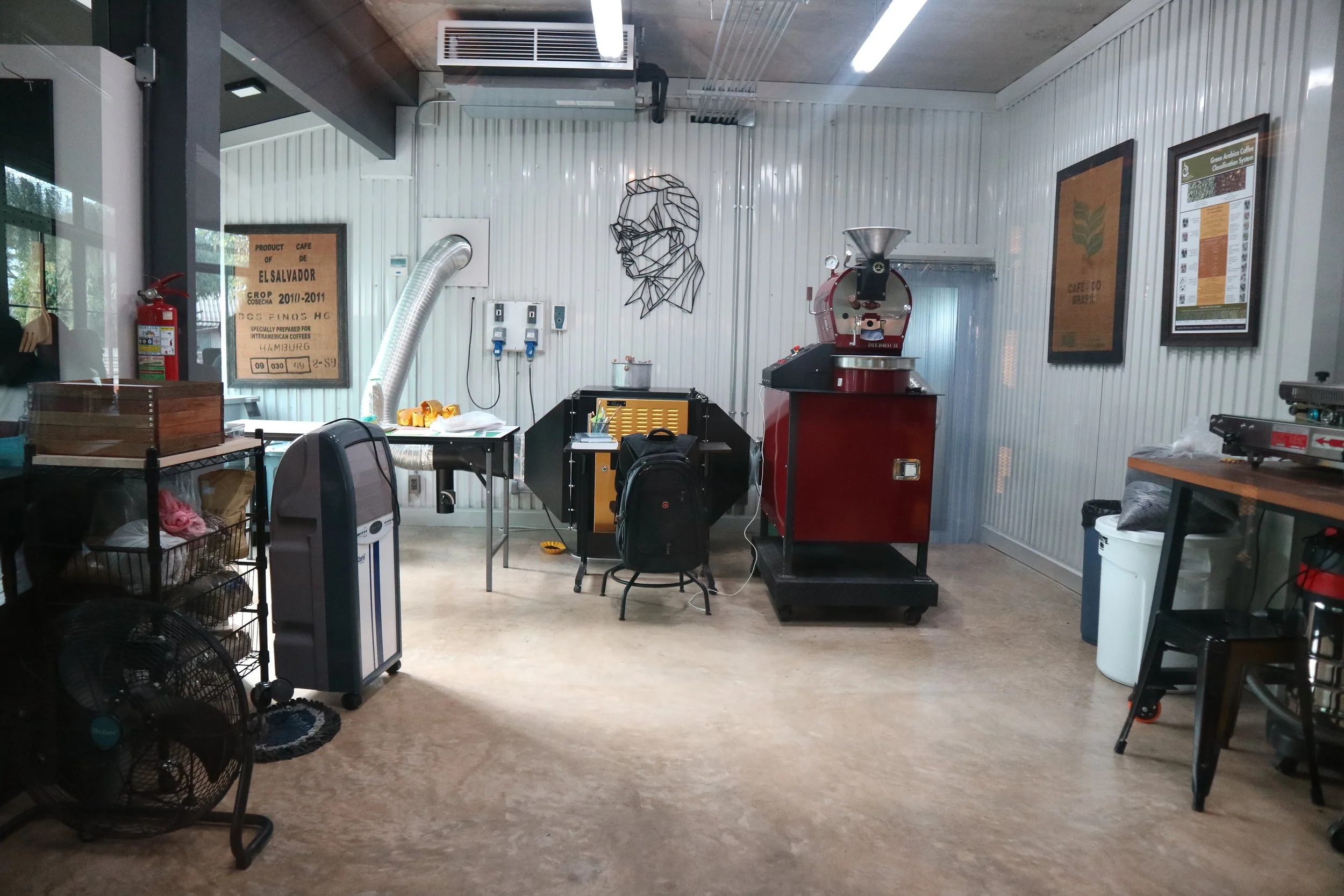The Roastery by Roj
Chiang Rai, Thailand
The Roastery by Roj is a special place - one with connection and care reaching in two directions, towards both the cafe patron and coffee farmer (who only lives about a 45 minute ride away). I’ll quote an earlier post, where I introduced Roj and The Roastery in the context of the greater Chiang Rai and Thailand coffee scenes. Roj really does deserve his own space, though, as he’s been hugely influential in the region.
“Roj is the consummate host, welcoming us into his well-curated world complete with all the latest gadgets, toys, and types of coffees that any enthusiast or professional would be happy to inhabit. The regulars seemed really happy to have this space to do their coffeehouse thing, whether it’s geeking out over a gesha or natural process Ethiopian import, or the latest processing experiment from the farms just an hour away, or simply enjoying the atmosphere as a spot to set up and get some work done. This really is the spot to grab your hit of coffee before heading up the mountain. Roj is there, quietly doing his thing, and welcoming visitors as they file in. What isn’t immediately apparent, though, is the direct influence that he’s had on Thai specialty coffee, specifically the Pangkhon area production.”
I asked him a few questions and here’s what he said…
Where are you from and what led you to coffee?
I’m from Chiang Rai (home town). Before coffee, I was a technician in a car factory in Bangkok. Everything was ok but we found out the we didn’t have enough time for kids when we get married, so we decided to come back home. We started by opening a Thai traditional coffee shop first, but after just one year we changed to [our current model] because [we realized that we can actually influence] the quality of coffee.
When did you start working in the coffee industry?
8 years ago [when we opened our first cafe]
Did you have any coffee teachers or mentors?
(Q arabica grader ) Roukiat Delrue , CQI Director Q and Educational Program.
(Professional Roasting) Jeremy Raths, Senior Instructor
(Professional Brewing Skill) Nicholas Haw ,SCAE Brewing Authorized Trainer.
(Advance Barista and art of espresso skill) Espressoman co.,Ltd.
(Scentone Flavorist, Coffee LV.1,LV2) Anuwat Kobnampetch, Scentone Instructor.
When did you start working with Thai coffee farmers?
About 5 years ago.
Who do you work with in Thailand? Any collaborations?
I help coffee farmers make a group and improve quality coffee beans, then connect them to Thai coffee beans buyer and export to specialty coffee shop in many countries. When farmers and buyers understand each other, I came back to concentrate on my own shop again. It took time (about 4 years), and last year I came back to focus on my coffee shop again.
What is your vision for The Roast and The Roastery, and for Thai coffee in general?
We wanted to come back home to have time with family, so we hope that we could produce very good coffee quality (to the world specialty coffee standard ), not too expensive, so our local community can have good coffee and good price. We still want to improve quality of life for coffee farmers who produce green beans for The Roast and The Roastery. And we’re [shifting towards] organic farming practices. Both coffee shops will produce clean coffee and clean food, at a sustainable local price. We hope that we could show our local coffee community that we can do business with real good product, and not just think about money.
For Thai coffee - I think our coffee has room to improve to specialty coffee quality, and also can develop more [variety and volume]. Thai coffee needs to go to specialty grade because the costs of making coffee in Thailand are very high if compared with [elsewhere]. If we do commercial grade (same as now), in next two years coffee farmers will have a very hard time, because other countries have lower costs (and prices). In the next 5 years I hope that Thai coffee will improve to a higher specialty coffee standard, [which] will improve the producers’ lives.
…………………..
Roj is an inspiration, and his vision for a more connected Thai specialty coffee industry should be studied and copied around the producing world. His proximity to the producers with whom he works gives him both an insight into and influence on the quality of the coffee he’s buying, and the model has been taken on with other growers and buyers in the area.
Rather than focusing on simply getting a high price to the grower, Roj believes that giving them something to be proud of is more important.
“The coffee farmers I work with want to present their work on equal ground with any other industry,” Roj says, as this gives them endless reasons to improve year after year, even after they’ve received higher prices for their current product. The close relationship allows him to show growers what specialty buyers are looking for (not just once, but every season), which in turn helps them to stay current with trends and expectations. This of course leads them to make decisions based on their own interests and capacity, and this leads to innovation at the grower level.
His hard work has paid off and continues to yield yummy (and ever-improving) coffees, and more important, a sustainable business relationship with farmers who have historically suffered from inequities that plague most supply chains. The growers I met were young, enthusiastic, innovative, and hungry for knowledge. Keep an eye here for updates, as I do plan to visit Roj again next year.




